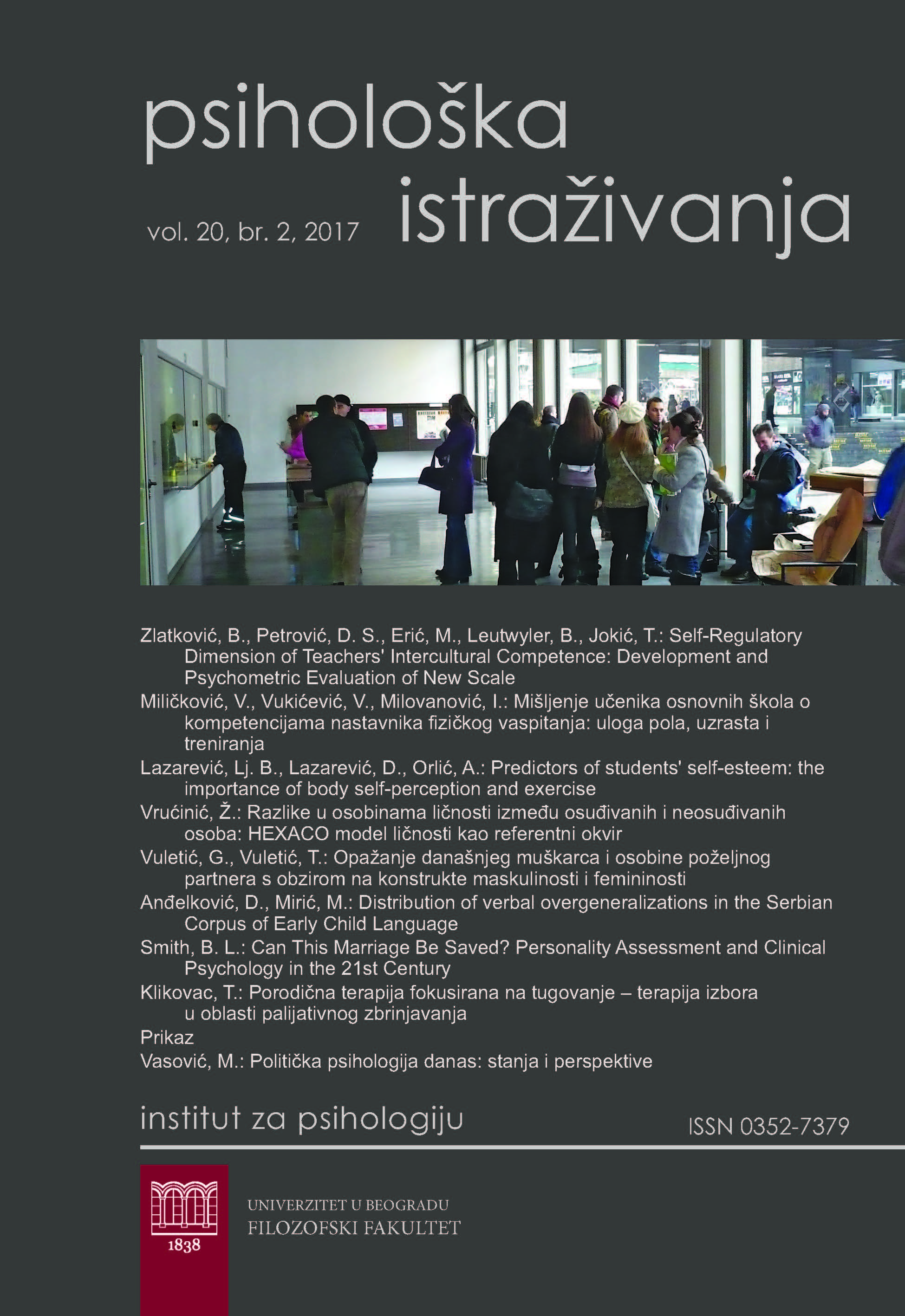Mišljenje učenika osnovnih škola o kompetencijama nastavnika fizičkog vaspitanja - uloga pola, uzrasta i treniranja
Primary school students' opinions about the competences of physical education teachers: The role of gender, age and training
Author(s): Velimir Miličković, Veljko Vukićević, Ilija MilovanovićSubject(s): Psychology, School education, Educational Psychology
Published by: Филозофски факултет, Универзитет у Београду
Keywords: teacher competencies; professional competences; socio-emotional competences; physical education; elementary school
Summary/Abstract: Previous studies of the competences of physical education teachers point to the problematic operationalization of the questionnaires designed to assess the competences of teachers based on students' assessment, as well as to the presence of gender and age differences, and the differences related to the fact whether the students practice some sport outside formal education. The aim of the present research was to determine the latent structure of the Questionnaire of the Opinions about the Physical Education Teachers Competences as well as to examine the gender and age differences on the questionnaire dimensions. Additionally, the study was aimed at providing the answer to the question whether the fact that a student actively practices some sport is a factor that influences the answers on the different measures of the questionnaire. The study involved 119 students (46% male) aged 11 to 14, from the territory of Vojvodina. In the total sample, 19% of students attended the fifth grade, 31% attended the sixth grade, 18% attended the seventh, and 32% of students attended the eighth grade of primary school. A total of 64% of students were practicing some sport. The Questionnaire of the Opinions about the Physical Education Teachers Competences was used, which is intended for assessing the competences of teachers by students. Factor analysis extracted two main components of the questionnaire: professional competences and socio-emotional competences of teachers. The results point to the conclusion that on both components of the questionnaire younger students had higher scores, while gender differences were not detected. The differences in relation to practicing sports are present only in the case of the socio-emotional competences of physical education teachers, meaning that those students who practice sports outside formal education scored higher on this dimension. It seems that the competences of physical education teachers are of great importance in the period of early and middle adolescence, and they need to be adapted to students, depending on their socio-demographic characteristics and affection for sports and sports practicing.
Journal: Psihološka istraživanja
- Issue Year: 20/2017
- Issue No: 2
- Page Range: 221-237
- Page Count: 17
- Language: Serbian

